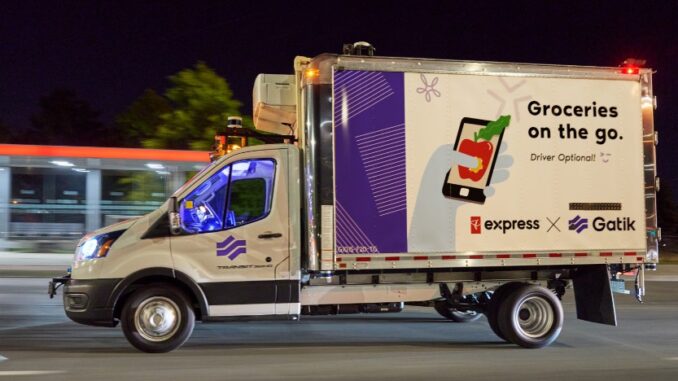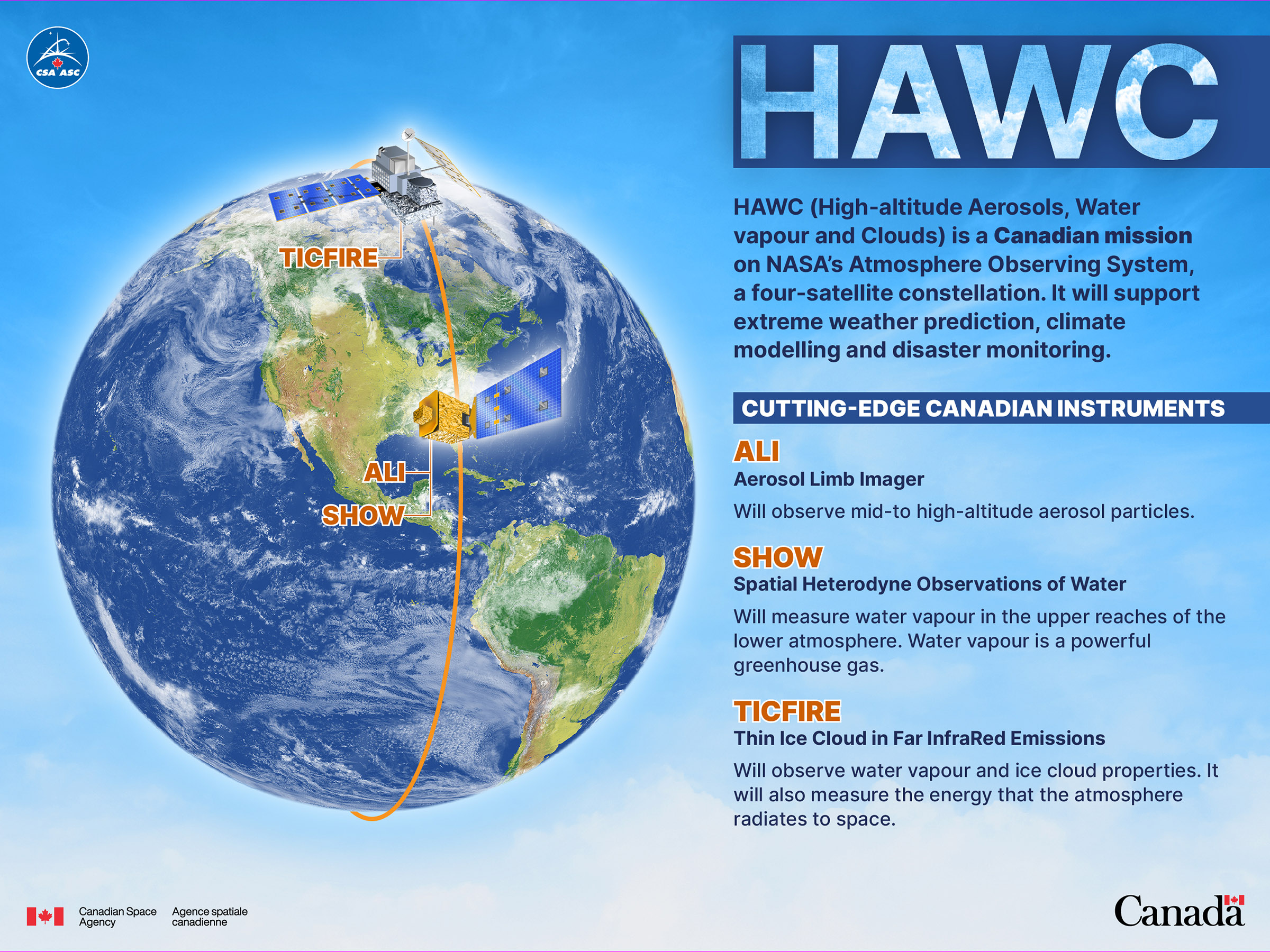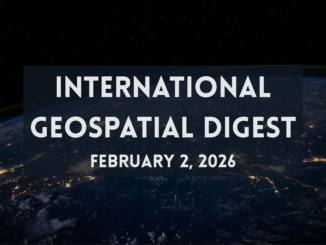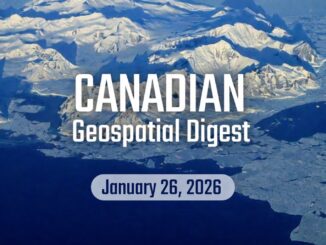
- National climate science satellite mission co-led by U of T secures more than $200 million
- Loblaw’s driverless delivery trucks have hit GTA streets
- Democratizing data: new interactive map empowers Canadians to access immigration data
- SkyWatch Launches New EarthCache-X Offering; Announces Partnerships With Leaders in Earth Observation
- Foot traffic up in Canadian downtowns, but office traffic remains depressed
National climate science satellite mission co-led by U of T secures more than $200 million
Scientists across Canada will be able to better predict and mitigate extreme weather events due to a new satellite mission that’s received more than $200 million in federal funding.
The HAWC satellite system (High-altitude, Aerosol, Water vapour and Clouds ) is Canada’s contribution to NASA’s international Atmosphere Observing System (AOS), a multi-satellite initiative designed to provide critical atmospheric measurements for climate change projections. Planned to be launched in 2028 and 2031, HAWC will use three innovative sensors to deliver the critical data needed to predict extreme weather, monitor for natural disasters and model climate-change impacts, especially in the Arctic.

13 universities collaborating on this mission includes: University of Toronto, University of Saskatchewan, Université du Québec à Montréal, McGill University, University of New Brunswick, Université de Sherbrooke, University of Waterloo, Wilfrid Laurier University, St. Francis Xavier University, Saint Mary’s University, University of Victoria, Western University and Dalhousie University.
Loblaw’s driverless delivery trucks have hit GTA streets
The GTA officially has driverless grocery trucks. Loblaw has partnered with American autonomous logistics company, Gatik to introduce Canada’s first self-driving delivery vehicles.

The five refrigerated trucks will transport goods from a Loblaw distribution facility to five retail locations in the GTA using fixed routes. The vehicles will operate for 12 hours a day, seven days a week. The self-driving software is designed for both urban and highway driving.
Democratizing data: new interactive map empowers Canadians to access immigration data
Researchers from the University of Manitoba (U of M) and the University of Saskatchewan had an idea to create a digital map anyone could use to look up answers to questions such as, how many asylum seekers came to Canada from Iran in 2020? The new tool is the Canadian Immigration Research Portal and provides statistical demographic data to the public, thanks to an agreement the researchers made with Immigration, Refugees and Citizenship Canada (IRCC).
SkyWatch Launches New EarthCache-X Offering; Announces Partnerships With Leaders in Earth Observation
SkyWatch Space Applications Inc., a Canadian space tech company democratizing remote sensing data, announced today the launch of EarthCache-X (EC-X) and its partnerships with Capella Space, ICEYE, Satellogic and Vexcel Imaging, to deliver emerging data types to the commercial Earth observation market.
Foot traffic up in Canadian downtowns, but office traffic remains depressed
According to data from Avison Young’s Vitality Index, foot traffic in urban centers has been rebounding since the pandemic, but office traffic remains far off from its pre-pandemic height.
Though a return to pre-pandemic office occupancy remains a steep climb, the index found a steady increase of activity in major North American markets since Labour Day weekend 2022.
“Social downtowns are back, but working downtowns are still struggling to recover,” said Julian Adams, Avison Young’s principal, director, data science.




Be the first to comment